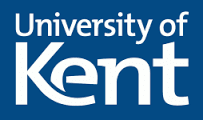The University of Kent in Canterbury has been employing Elgood business simulations to build practical experience of decision-making and problem-solving into its vocational courses. Both the post-graduate Finance, Investment and Risk MSc course, and the undergraduate BSc in Actuarial Science have incorporated the simulations into their curriculum, exposing students to the realities of running a business and challenging them to work effectively as a team under pressure.
 Course tutor Roger Bevan says “About 40 students from each course took part this year, and it was very striking how engaged they became, how intense their discussions were, and how much they enjoyed the competitive nature of the simulations. It was evident that they learnt a lot about how businesses work, and also about themselves.”
Course tutor Roger Bevan says “About 40 students from each course took part this year, and it was very striking how engaged they became, how intense their discussions were, and how much they enjoyed the competitive nature of the simulations. It was evident that they learnt a lot about how businesses work, and also about themselves.”
The Simulations
The Way Forward developing analytical, communication and research skills in post graduates
All postgraduates studying for the Masters in Finance, Investment and Risk now take part in ‘The Way Forward’ as part of their qualification. In this challenging business simulation, teams of six students from fictitious companies and compete against each other over a series of rounds, each hoping to achieve the highest share price. Acting as company directors, they make decisions about which geographic areas they will sell their products in, how the products will be priced and distributed, and how to prioritise the company’s activities. The teams also have to deal with one-off unexpected events and must formulate an overall strategy for their business, including a dividend policy.
The simulation encourages members of each company team to agree how best to utilise their abilities and manage their time most effectively, whilst developing their communication, influencing, teamwork and business awareness skills. After four rounds they make a formal presentation on their business and are marked and given feedback on this to help with the communication aspects of the module.
“Running a company is a complex task.
Setting a goal for the whole company is important”
Multimarket introducing the risks and rewards of international trade to undergraduates
The BSc in Actuarial Science is one of the few programmes to achieve full accreditation from the actuarial profession, with students gaining exemptions from eight of the Actuarial Profession’s examinations.
In the Multimarket simulation, which forms part of the course, students form fictitious companies and take a series of key decisions whilst operating in a competitive international marketplace. In addition to gaining practical experience and understanding of the inter-relationships between pricing, expenses, profitability and currency risk, they aim to achieve a higher return on capital than their competitors over four rounds of the simulation.
The students are then tasked to prepare a team report for the Board of Directors, covering their business strategy, financial results, future plans and how they structured themselves to best utilise the skills of their team. These reports are assessed and count towards their final degree. Many of the students have gone on to pursue successful careers not only in the actuarial field but also in accountancy, banking and operational research.
What the students say about the simulations
Decision-making
- A great experience in making important business decisions within a short timescale.
Communication Skills. - Effective communication played a key role in conveying our analyses in the best way possible.
- We gained experience in explaining ideas clearly and briefly.
Team Working
- Our conflicts strengthened our team relationships.
- We were able to resolve issues with debate.
- We learnt how to work more efficiently and make decisions better as a team.
Analytical Skills
- We gained experience in identifying and analysing key data.
- We learned how to apply our theoretical knowledge of accounting, liquidity and profitability ratios.
Business Experience
- A great first-hand experience of what is required to run a business, including appropriate delegation of tasks, managing time effectively and working under pressure without making erratic decisions.
- Running a company is a complex task. Setting a goal for the whole company is important.

